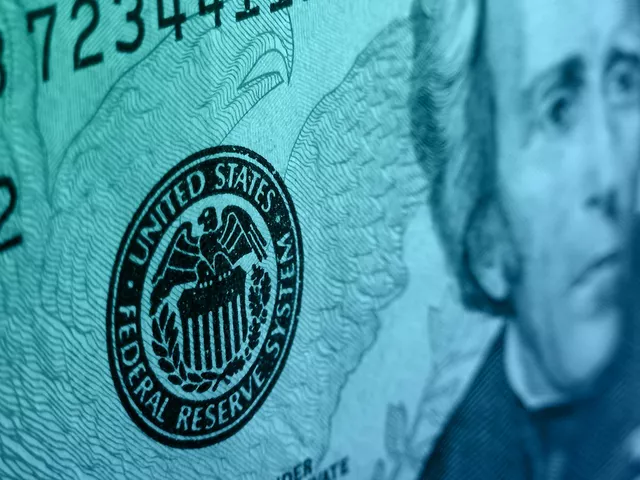The Federal Reserve: A Closer Inspection
Every single day, millions of Americans wake up, tie the shoelaces of their work boots, drink their cup of joe and go about their routines blissfully unaware of the controlling powers steering our country's economy. Yet if we bought a pair of binoculars and dared to zoom in on these elusive puppet-masters, we'd find the Federal Reserve smack bang in the middle of it all. They're the Monopoly(™) banker. They're the game master of our Hunger Games, the referee of our national economic football match. Yet, despite being ridiculously fascinating and surprisingly powerful, most of us couldn't even win a trivia match based on the basics of what the Federal Reserve actually does. For example, does the Federal Reserve buy and sell stocks? Let's take a deeper dive.
The Shrouded Machinations of the Federal Reserve
The Federal Reserve: a cryptic name that stirs up the image of cavernous vaults, guarded by stern men in three-piece suits, overseeing volumes of greenback banknotes and shiny gold bars. However, their toolbox extends beyond merely printing money or changing the size of the physical reserves kept by banks. They have at their disposal a wide range of instruments to control short-term interest rates, including open market operations. Right now, you might be wondering, does that mean they also dabble in the stock market?
Open Market Operations: A Basic Explanation
Open Market Operations is a fancy term for when the Federal Reserve buys and sells government securities - Treasury notes, bills, and bonds - in the open market, hence the name. These operations are the primary tool the Federal Reserve uses to affect the amount of bank reserves, which in turn influences the interest rates. Now, right now you may be thinking, "Hang on, Daxton! Government securities - doesn't that sound suspiciously like stock trading?" Hang tight, because we are about to take a closer look.
Stock Market vs. Government Securities: A Contrasting Pair
Although it’s easy to confuse government securities with stocks, there are some key differences between the two. When we talk about stocks, we’re usually referring to investments in private entities. Owning stock makes you a partial owner in a company. Government securities, on the other hand, are debt obligations. When you buy a government bond, you're essentially lending money to the government. The return you'll get is fixed and guaranteed, unlike stocks, where returns depend on the performance of the company.
The Federal Reserve's Hands-Off Approach to Stocks
So, despite the Federal Reserve's vast reach and power within the financial world, they currently don't participate directly in the stock market. They tend to stick to their lane, leaving the responsibility of stock buying to individual investors, institutions, mutual funds, and so on. It's a bit like my kids, Everett and Wisteria, when they play Monopoly(™). Wisteria sticks to buying and selling properties while Everett controls the bank - he's a mini Federal Reserve of our own.
A Scenario Where the Federal Reserve Could Buy Stocks
While the Federal Reserve does not currently buy stocks, certain circumstances could potentially change that. For example, in a hypothetical major economic downturn situation where traditional monetary policy tools aren't effective anymore, the Federal Reserve may need to adopt more unconventional tools - perhaps even considering stock purchases. However, that would require a change in legislation, and we know that’s not always the easiest process. It's like asking Everett to let Wisteria be the banker in Monopoly(™) for a change - not going to happen without some considerable push and pull.
Hopefully, this article has made the Federal Reserve's relationship with stocks a bit larger and clearer in your mental arsenal. And remember, don't be Wisteria at the start of the game, not knowing who controls the money. Be Everett, aware and in control.

Write a comment
Your email address will not be published